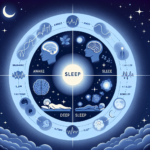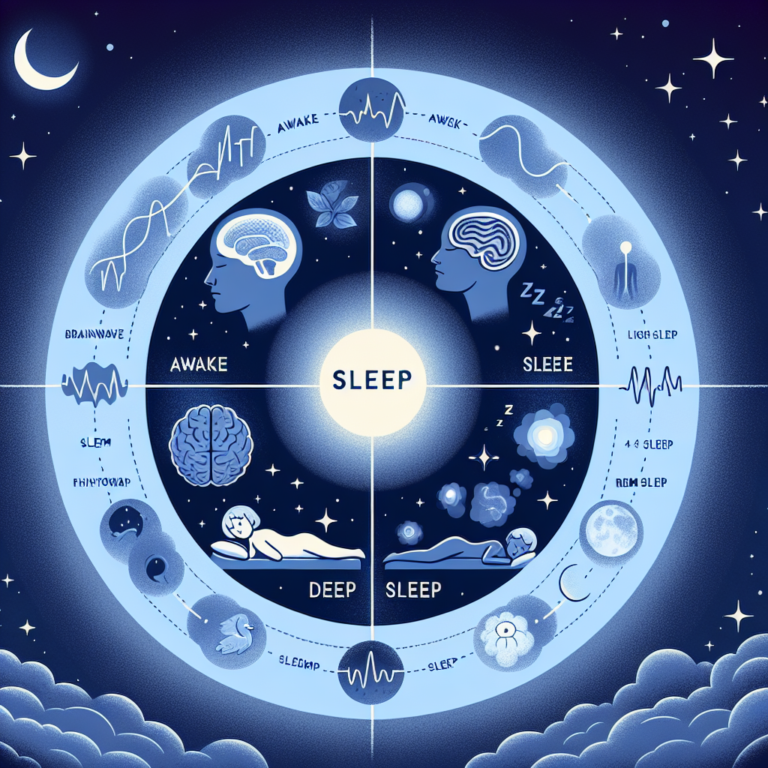
Sleep Hygiene Myths Debunked: What Really Helps You Get Quality Rest?
In today’s fast-paced world, sleep has become a commodity we often take for granted. With sleep disorders on the rise and countless myths surrounding sleep hygiene circulating, it’s crucial to separate fact from fiction. Understanding what genuinely fosters quality sleep can be transformative for your health and well-being. Here, we delve deep into the topic, “Sleep Hygiene Myths Debunked: What Really Helps You Get Quality Rest?”, to uncover the truth behind common misconceptions and provide you with actionable insights.
Introduction: The Importance of Sleep Hygiene
Sleep is not just a time for your body to recharge; it’s a critical component of your overall health, affecting everything from cognitive function to emotional stability. Sleep hygiene encompasses the habits and practices that promote uninterrupted and quality sleep. However, many widely-held beliefs about sleep hygiene are misleading or flat-out incorrect. Understanding these myths—and what actually promotes better sleep—can be a game changer.
The Relevance of Sleep Hygiene
Good sleep hygiene can lead to better mental clarity, improved mood, and even enhanced physical health. Poor sleep hygiene, on the other hand, can contribute to a slew of problems such as anxiety, depression, and chronic health conditions like obesity and heart disease. The question is: What really helps you achieve those long sought-after Zs?
Common Sleep Hygiene Myths Debunked
1. Myth: You Can Catch Up on Sleep Over The Weekend
Reality: Sleep Debt Accumulates
Many of us cling to the notion that we can make up for lost sleep during the weekend. While it’s tempting to “binge” on rest, research indicates that chronic sleep deprivation can have lasting effects that cannot be counteracted by catch-up sleep.
Case Study: A Month-Long Sleep Study
In a study published in the Sleep Journal, researchers found that participants who had irregular sleep patterns experienced heightened stress and decreased cognitive performance, which didn’t improve even after weekends of extra sleep.
Thus, the myth of catch-up sleep is debunked: Quality sleep is about consistency, not periodic indulgence.
2. Myth: Alcohol Helps You Sleep Better
Reality: Alcohol Disrupts Sleep Cycle
Many believe that a nightcap can aid sleep, but research shows that alcohol actually interferes with sleep quality, particularly REM sleep. It may help you fall asleep faster, but as your body metabolizes alcohol, it can disturb your sleep throughout the night.
Analysis of a Recent Survey
A survey conducted by the National Sleep Foundation found that individuals who consumed alcohol regularly reported poorer sleep quality and increased awakenings at night.
So next time you think of using alcohol as a sleep aid, remember that it may actually worsen your sleep hygiene.
3. Myth: Napping Is a Waste of Time
Reality: Napping Can be Beneficial
While excessive napping might interfere with nighttime sleep, short naps (around 20-30 minutes) can enhance alertness and performance without significantly disrupting nighttime rest.
Case Study: NASA’s Sleep Research
NASA conducted research on pilots and astronauts, demonstrating that a brief nap improved performance and alertness without hindering nighttime sleep.
So, don’t shun the nap; an informed approach can boost your productivity and overall well-being!
4. Myth: A Warm Bath Before Bed Guarantees Better Sleep
Reality: It Depends on Timing
Taking a warm bath before bed doesn’t automatically lead to better sleep. While the drop in body temperature post-bath can promote sleepiness, doing so too close to bedtime can be counterproductive.
Data Analysis: Bath Timing on Sleep Quality
A study from the Journal of Clinical Sleep Medicine showed that optimal benefits were achieved when baths were taken about 90 minutes before bedtime, allowing ample time for body temperature to drop.
Timing matters! Understanding how your body responds to changes in temperature can help optimize your bedtime routine.
5. Myth: Darkness Is the Only Factor for Sleep
Reality: Environment Plays a Broader Role
While darkness is crucial for signaling your brain to release melatonin, other environmental factors like noise, temperature, and even mattress quality significantly affect sleep quality.
| Chart: Factors Affecting Sleep Quality | Factor | Impact Level |
|---|---|---|
| Darkness | High | |
| Noise | Very High | |
| Room Temperature | High | |
| Mattress Quality | Very High |
From this chart, it’s clear: creating a holistic sleep environment is vital in achieving quality rest.
What Really Helps You Get Quality Rest
1. Establishing a Consistent Sleep Schedule
One of the most effective techniques for better sleep hygiene is to establish a consistent sleep schedule. Going to bed and waking up at the same time each day, even on weekends, can help regulate your body’s internal clock, thereby improving sleep quality.
2. Creating a Sleep-Inducing Environment
Your bedroom should be a sanctuary for sleep. Consider the following factors:
- Low Light: Use blackout curtains to minimize light interference.
- Cool Temperature: The ideal temperature for sleep is typically between 60 to 67 degrees Fahrenheit.
- Quiet Space: Use white noise machines or earplugs to drown out disruptive sounds.
3. Mindful Eating Habits
What and when you eat can greatly influence your sleep quality. Aim to avoid heavy meals, caffeine, and nicotine close to bedtime. Instead, opt for light snacks if you’re hungry.
4. Incorporating Relaxation Techniques
Practices such as meditation, deep breathing, and progressive muscle relaxation can ease stress and anxiety, which are significant barriers to a good night’s sleep.
5. Physical Activity
Regular physical activity can greatly improve sleep quality and help alleviate insomnia. However, be mindful of the timing; vigorous exercise should be avoided close to bedtime.
Conclusion: Take Control of Your Sleep Hygiene
Separating fact from fiction in the realm of sleep hygiene will empower you to cultivate habits that genuinely foster quality rest. As we’ve seen through evidence and case studies, debunking sleep myths is essential for paving the way for better health and well-being.
Sleep hygiene isn’t merely about avoiding certain practices; it involves a holistic approach to your bedtime environment and routine. By prioritizing consistent schedules, mindful eating, and relaxation techniques, you can enrich your sleep quality and, in turn, your life.
FAQs
1. How much sleep do most adults need?
Most adults require between 7 to 9 hours of quality sleep each night for optimal functioning.
2. Is it normal to wake up during the night?
Yeah, it’s normal for people to wake up briefly during the night. However, if you struggle to fall back asleep or frequently wake up, it may indicate a sleep issue.
3. Can I improve my sleep quality with supplements?
Some people find that supplements like melatonin can help, but it’s best to consult with a healthcare provider before starting any new supplement.
4. How can I manage nighttime anxiety that disrupts sleep?
Techniques such as cognitive-behavioral therapy (CBT), mindfulness, and relaxation methods can be effective in managing anxiety that disrupts sleep.
5. Should I avoid screens before bed?
Yes, the blue light emitted from screens can interfere with melatonin production. Aim to limit screen time at least an hour before bed.
By incorporating this knowledge into your sleep routine and debunking sleep hygiene myths, you set the stage for a healthier and happier you. Sweet dreams!

















